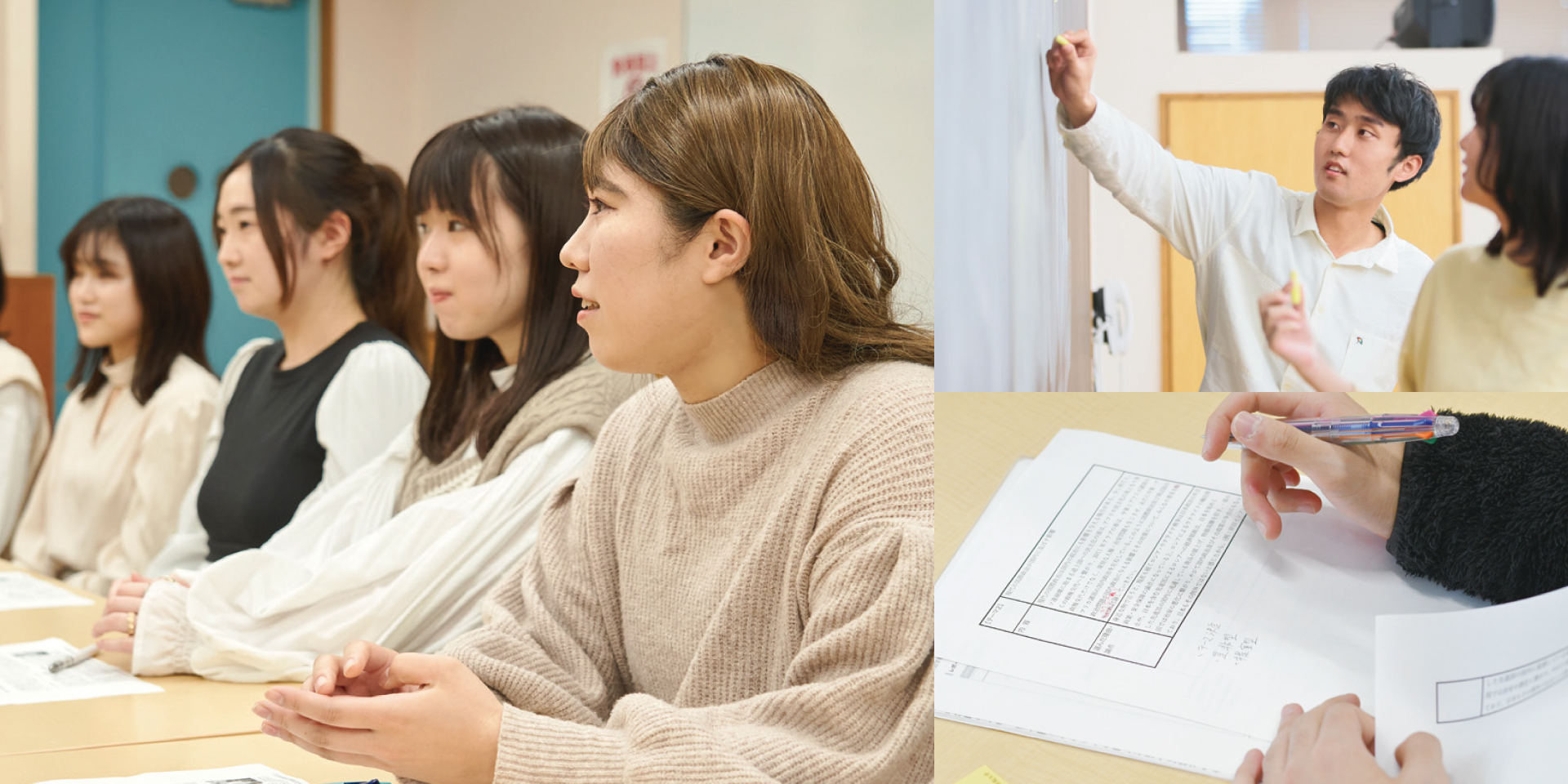Department of Political Science
Department of Juridical Studies
Department of Current Legal Studies
Department of Global Legal Studies
Department of Political Science

Learning the specialized, practical skills to detect and discuss issues, and propose solutions
Politics is the process by which the members of a society make and implement decisions to solve the issues that society faces. Resolving such issues demands a scientific approach, an understanding of history, and conceptual skills rooted in philosophy and ideas. The Department of Political Science produces well-educated political citizens with comprehensive decision-making and critical thinking skills, and the courage and empathy to work toward resolving such issues.
Department of Political Science
Key Features of the Department of Political Science
Program Structure
Topics
Admission Policy
Key Features of the Department of Political Science
Point 01
The freedom to study a wide range of subjects with a focus on your career path
The Department has only two required courses: Intro Seminar of Political Science and Elements of Political Sciences. After mastering the basics of political science in their first year, students can choose freely, based on their intended career and interests, from courses in three areas of study: Governance, which covers public policy and local politics; Media and Politics, which covers polimetrics and the media; and International Politics, which covers international relations and diplomacy.
Point 02
Student-organized lectures by politicians
Students plan and host political debates and guest lectures by politicians for first-year students on themes they decide for themselves. It is a long-standing tradition in the Department of Political Science that students take full responsibility for all aspects of these events, from choosing which politicians to invite, to handling negotiations and managing all operations on the day of the event, making this a valuable experience for our students. Past guests have included a wide range of politicians, from former prime ministers to both ruling and opposition party members, as well as both veterans and newcomers.
Point 03
Substantial small-group education and research activities
We emphasize small-group education, such as the Introductory Seminar in the first year that leads on to fieldwork in the second year, and exercises and the writing of a graduation thesis in the third and fourth years. We provide students with many opportunities to learn from each other and receive personalized guidance from our faculty. Research activities are based on the students’ own interests, and they confront the reality of politics through interviews and hands-on activities at places such as the offices of parliamentary members, government agencies, media organizations, NPOs, and NGOs.
Program Structure
In small-group seminars on basic topics during their first year, students develop their ability to learn autonomously while strengthening their discussion and presentation skills. They begin specialized studies in earnest in their second year, as well as carrying out field research with one-on-one guidance from a faculty member. In their third and fourth years, the focus of their learning is on exploring topics in seminars. The themes covered range from local issues to international politics, and many unique seminars are available, such as hands-on overseas training or participating in a contest where university students from all over Japan compete in formulating public policies.
Topics
Learning methods for the quantitative understanding and analysis of political phenomena
Polimetric Analysis
Which kinds of countries tend to democratize, what are the causes of civil wars, and are local governments in Japan reducing waiting lists for daycare services? Students gain a quantitative understanding of political phenomena such as these, and acquire the tools to analyze them statistically while considering the importance of finding causal relationships.
Learn how strategies to solve social issues can be based on the actual situation and theory
Public Policy
Students learn about real-world social issues, and the nature of public policy as solutions based on political theories. They also consider how government, business, and non-profit organizations are involved in such solutions and the roles they play in them.
